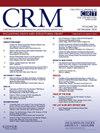Hyperemic vs non-hyperemic indexes discordance: Role of epicardial and microvascular resistance (HyperDisco Study)
IF 1.6
Q3 CARDIAC & CARDIOVASCULAR SYSTEMS
引用次数: 0
Abstract
Background
Literature reports a 20 % discordance between hyperemic (FFR) and non-hyperemic indexes (NHi) of coronary stenosis lesions. This work aims to develop and test clinically, a formula relating FFR and NHi (including iFR, RFR and Pd/Pa) to study their discordance.
Methods
We conducted a prospective, single-center, clinical study enrolling all patients undergoing full coronary physiology assessment with Coroventis CoroFlow Cardiovascular System (Abbott Vascular, St. Paul, Minnesota) to validate the developed formula:
where IMR(BMR) is the hyperemic (basal) microvascular resistance and HSR(BSR) is the hyperemic (basal) stenosis resistance.
Results
A total of 51 patients were enrolled, 72 % male, average age 67.4 ± 8.9. Mean hemodynamic data were: FFR 0.87 ± 0.07, iFR 0.93 ± 0.05, RFR 0.91 ± 0.05, Pd/Pa 0.92 ± 0.05, BMR 76.6 ± 51.6 mmHg*s, IMR 28.4 ± 22.8 mmHg*s, BSR 5.5 ± 4.7 mmHg, HSR 3.8 ± 2.9 mmHg*s, coronary flow reserve (CFR) 2.9 ± 1.6, resistive reserve ratio (RRR) 3.3 ± 2.0. Lin's Concordance and Bland Altman analysis showed an optimal correlation between measured and estimated data. Sensitivity analysis showed that: (1) FFR can underestimate epicardial stenosis severity leading to FFR- vs NHi + discordance in case of elevated IMR, (2) NHi can overestimate epicardial stenosis severity leading to FFR- vs NHi + in the case of low BMR, (3) if BSR > HSR, FFR- vs NHi + discordance can occur, while if BSR < HSR, FFR+ vs NHi- discordance can occur.
Conclusion
(1) NHi can be more reliable in case of elevated IMR; (2) FFR-CFR combination can be more reliable for low BMR occurring to compensate an epicardial stenosis; (3) NHi-CFR combination can be more reliable when BSR > HSR, while FFR-CFR combination can be more reliable when BSR < HSR. The combination between pressure and flow indexes (FFR-CFR or NHi-CFR) is more reliable when compensatory mechanisms occur.
高血压与非高血压指数不一致:心外膜和微血管阻力的作用(HyperDisco 研究)。
背景:文献报道冠状动脉狭窄病变的充盈指数(FFR)和非充盈指数(NHi)之间存在20%的不一致。这项工作的目的是开发并临床测试一个与 FFR 和 NHi(包括 iFR、RFR 和 Pd/Pa)相关的公式,以研究它们之间的不一致性:我们进行了一项前瞻性、单中心临床研究,纳入了所有使用 Coroventis CoroFlow 心血管系统(明尼苏达州圣保罗市雅培血管公司)进行全面冠状动脉生理评估的患者,以验证所开发的公式:[公式:见正文],其中 IMR(BMR) 为充盈(基础)微血管阻力,HSR(BSR) 为充盈(基础)狭窄阻力:共有 51 名患者入选,其中 72% 为男性,平均年龄(67.4 ± 8.9)岁。平均血液动力学数据为FFR 0.87 ± 0.07,iFR 0.93 ± 0.05,RFR 0.91 ± 0.05,Pd/Pa 0.92 ± 0.05,BMR 76.6 ± 51.6 mmHg*s,IMR 28.4 ± 22.8 mmHg*s,BSR 5.5 ± 4.7 mmHg,HSR 3.8 ± 2.9 mmHg*s,冠状动脉血流储备(CFR) 2.9 ± 1.6,阻力储备比(RRR) 3.3 ± 2.0。Lin's Concordance 和 Bland Altman 分析表明,测量数据和估计数据之间具有最佳相关性。敏感性分析表明(1) 在 IMR 升高的情况下,FFR 可低估心外膜狭窄的严重程度,导致 FFR- vs NHi + 不一致;(2) 在 BMR 低的情况下,NHi 可高估心外膜狭窄的严重程度,导致 FFR- vs NHi + 不一致;(3) 如果 BSR > HSR,则 FFR- vs NHi + 不一致可能发生,而如果 BSR 结论为:(1) NHi 可高估心外膜狭窄的严重程度,导致 FFR- vs NHi + 不一致;(2) 如果 BSR > HSR,则 FFR- vs NHi + 不一致可能发生:(1)在 IMR 升高的情况下,NHi 更为可靠;(2)在补偿心外膜狭窄而出现低 BMR 的情况下,FFR-CFR 组合更可靠;(3)当 BSR > HSR 时,NHi-CFR 组合更可靠,而当 BSR > HSR 时,FFR-CFR 组合更可靠。
本文章由计算机程序翻译,如有差异,请以英文原文为准。
求助全文
约1分钟内获得全文
求助全文
来源期刊

Cardiovascular Revascularization Medicine
CARDIAC & CARDIOVASCULAR SYSTEMS-
CiteScore
3.30
自引率
5.90%
发文量
687
审稿时长
36 days
期刊介绍:
Cardiovascular Revascularization Medicine (CRM) is an international and multidisciplinary journal that publishes original laboratory and clinical investigations related to revascularization therapies in cardiovascular medicine. Cardiovascular Revascularization Medicine publishes articles related to preclinical work and molecular interventions, including angiogenesis, cell therapy, pharmacological interventions, restenosis management, and prevention, including experiments conducted in human subjects, in laboratory animals, and in vitro. Specific areas of interest include percutaneous angioplasty in coronary and peripheral arteries, intervention in structural heart disease, cardiovascular surgery, etc.
 求助内容:
求助内容: 应助结果提醒方式:
应助结果提醒方式:


